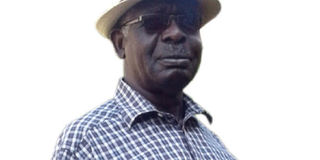Religions must work for peace

God made this world for all of us to be happy and then share His glory in heaven. Therefore, no religion has a right to make life difficult for others whatever their belief or dogma. We must write and discuss about violence openly so that we live in a peaceful world, free from religious violence.
Recently, Pope Francis, during his visit to Bangladesh, addressed an interreligious group comprising Muslim, Hindu, Buddhist and Christian communities, as well as civil authorities. He said this meeting was a “clear sign of the efforts of leaders and adherents to live together in mutual respect and good will”.
The Pontiff invited them to live, “religious solicitude for the good of our neighbor, which runs a vast river, watering the arid lands and deserts of hatred, of corruption, of poverty and violence, which so degraded human lives, divide families and disfigure the gift of Creation”.
We cannot call each other brothers and sisters when we don’t have a common Father – God, who is Love. Human rights rest on human dignity, people come before profits, and this right to life is an ancient measure of humanity. St Paul said in Ephesians 2:16 that Jesus ‘destroyed enmity in himself’; he destroyed enmity, not the enemy, he destroyed it in himself, not in others.
Lincoln Abraham said, “Do I not, perhaps, destroy my enemies when I make them friends?” Pope Francis said: “Killing in the name of God ‘is an aberration’”. There is no God in violence. In Africa, there are two major religions that compete for followers: Christianity and Islam. Both religions claim to believe in one God, though their major doctrinal and ethical issues are widely divergent and in some cases contradictory. The principal source of Islamic belief is the Quran, while the Christian source of belief is the Bible.
Because of pathetic situations in the Middle East, summits have been held to foster interreligious and intercultural relationships. One such a summit was held in Rome in 2014. In spite of these meetings and interactions, religious violence continues in many parts of the world, especially in the MUslem world. It was reported that in May 2015, in a single diocese in northern Nigeria, Boko Haram killed more than 5,000 Catholics and at least 100 people were displaced and 350 churches destroyed.
In Islam, Prophet Muhammad instructed Muslims to reject friendships with non-Muslims and to participate in holy war (jihad) and kill unbelievers if necessary in order to force them to submit to Islam.
Phophet Muhammad said: “I have been ordered to fight with the people until they say, ‘None has the right to be worshipped but Allah …” “…the Prophet continued: ‘If somebody (a Muslim) discards his religion, kill him”. Islam does not tolerate freedom of religion. Sharia Law prescribes a complete way of life for the Muslim.
In Islamic states, religion is not separated from state matters and many organised groups that oppose the presence of minority religious groups in their country intimidate or attack them. The situation is worse when these hostilities and government restrictions are combined.
Minority religions cannot talk their religion outside their premises. There is a big contrast in freedom of expression in countries where Christians are the majority. Christians love their enemies and pray for those who persecute them. Muslim brothers and sisters integrate well with Christians and are voted in various political and social offices.
They preach Islam publically without intimidation. Many times, the Pope has invited them in the Vatican and he has visited mosques.
This planet belongs to all of us and we should all be happy and peaceful. In this global village, evangelism must change its strategy, we cannot remain violent, the world will hate us and our religion.
I blame some of the teachers of Islam for they have presented the religion negatively, leaving out what would unite Christians and Islam. Even Prophet Muhammad confessed his own inability to know the end of his work or the fate of his followers when he said in Sum 46:9 (Al-Ahqaf) - “Say, I am no prodigy (marvel or special one) among the apostles; nor do I know what will he done with me or you. I follow only what is revealed to me, and my only duty is to give plain warning.”
The author is the executive director of Joy For Children Uganda.
[email protected]




